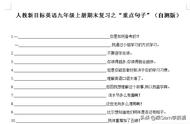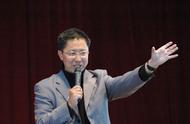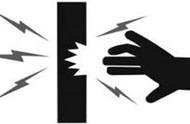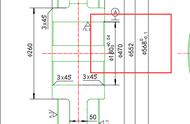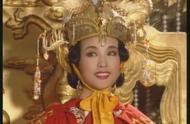
【重点单词】
1. music (n.)音乐
musician (n.) 音乐家
musical (adj.) 音乐的
2. Italy (n.) 意大利
Italian (n.) 意大利人
3. invent (v.) 发明
inventor (n.) 发明家
invention (n.) 发明
4. science (n.) 科学
scientist (n.) 科学家
scientific (adj.) 科学的
5. intelligence (n.) 才智
intelligent (adj.) 有智力的
6. art (n.) 艺术
artist (n.) 艺术家
artistic (adj.) 艺术的
7. able (adj.) 有能力的
ability (n.) 才能
disability (n.) 无能;残疾
8. include (v.) 包括;包含
including (prep) 包括,包含
9. win (v.)赢
winner (n.) 获胜的人
10. attract (v.) 吸引
attraction (n) 吸引
attractive (adj.) 吸引人的
11. die (v.) 死亡
dead (adj.) 死去的
death (n.) 死亡
【重点短语】
查阅;查找 look up
灭绝;消失 die out
出生 be born
弄清;查明 find out
在乡村 in the countryside
重要的事物 something important
从很小的时候 from an early age
使某人做某事 make sb. do sth
超凡智力 great intelligence
裂开 break open
艺术能力 artistic ability
对某人很重要 be important to sb.
随着某人逐渐长大 as sb. grows older
由……组成consist of= be made up of
例如 for example; such as
许多;大量 a number of
一些……另一些 some…others
各种各样的 all kinds of
人类 human beings
去散步 go for a walk
从…学到 learn about …from…
在报纸上 in the newspaper
【词汇解析】
1、human 人的,也写作human being
Dogs can hear much better than humans.
狗的听觉比人灵敏得多。
2、learn about 获悉,得知,了解到about是介词,后面接名词,代词做宾语,about 也可用of代替。
例:We re all sorry to learn about her illness.
听到她生病的消息,我们都很难过。
3、listen to 意为“听”,若表示听某人或某事时,后面要加介词to,to后接名词或代词。listen 意为“听”,指听的过程,强调动作,是不及物动词,不能直接跟宾语。
例:Listen to a radio programme about the “Human Encyclopedia”.
听关于“百科全书”的广播节目。
4、inventor 发明家
例: He is a famous inventor.
他是一位有名的发明家。
【拓展】(1)invent v. 发明、创造,指发明、创造出来的是以前没有的东西。
Gilbert discovered electricity,but Edison invented the light bulb.
吉尔伯特发现了电,但爱迪生发明了灯泡。
(2)invention n. 发明
The invention of the computer marked the beginning of a new era.
计算机的发明标志着一个新时代的开始。
5、musician 音乐家,可数名词。
a piece of music 一首音乐
listen to music 听音乐
【拓展】music n. 音乐,乐曲
musical adj. 音乐的
6、scientist 科学家
【拓展】-ist是表示人的职业类词汇的后缀:
scient 科学→scientist 科学家
art 艺术→artist 艺术家
piano 钢琴→pianist 钢琴家
violin 小提琴→violinist 小提琴家
7、born 出生
be born on 地点
be born in出生于
I was born in 1980. 我生于1980年。
8、ability 才能,能力,复数是abilities
have the ability to do sth有能力做某事
9、perhaps 可能,大概
【词语辨析】maybe ,perhaps,possible,probably
这四个词都意为“可能”,但表示可能性大小不一样,其顺序如下:
maybe或许,大概,主要用于非正式场合,常用于口语中,语气比perhaps轻。
perhaps也许,可能,副词,一般指小于一半可能性,较多的含有“不大可能”的意思。
possibly也许,或者,可能,可能性较大,用于否定句中表示“无论如何"之意。
probably很可能,大概,在这组中可能性最大,表示一种几乎完全肯定的意思。
10、include 包括,包含
The price of the room includes breakfast. 房间的租金包括在早餐在内。
【词语辨析】include , including , included
(1)include vt. 包含、包括,指整体包含部分,不一定举出所包含的全部内容。
The price includes both house and furniture.
价钱包括房子和家具
(2)including 介词,意为“包含,包括”,区别于included,放在名词之前。
There are seven people, including four men.
共有七人,包括四位男士。
(3)included adj. 包括在内的,常用于名词之后。它和including引起的短语含义相同,但是在句中的位置不同。
Everybody had something to say, me included/ including me.
11、nobody 没有人,nobody = not ...... anybody.
I saw nobody. = I didn t see anybody.
我没有见到一个人。
12、more than 后接数词,意为“超过,多于" ,相当于over
He has been ill for more than two weeks.
他病了两周多。
13、look up 查找,后面接名词或代词,代词做宾语必须放在look与up之间。
Please look it up in the dictionary, if you don t know. 如果你不明白就请查字典。
14、on earth 在地球上,在世界上,在人间,相当于in the world.
Dinosaurs lived on earth more than 60 million years before human beings.
在人类之前,恐龙在地球上生活了6千多万年。
【拓展】on earth 意为“究竟”。一般用于疑问词后表示强调
Where on earth have you been just now?
刚才你究竟去哪了?
15、as 形容词或副词原级 as …和…一样
not as 形容词或副词原级 as 表示双方在某个方面不同。
We think science is as important as maths.
我们认为自然科学和数学一样重要。
16、used to 意为“过去常常,以前常常”,后面接动词原形,表示过去的习惯,只表示过去和现在的对比,暗指现在已经不存在的动作或状态。
I used to be afraid of the dark.
我过去常常怕黑。
17、something important 意为重要的事情,something 为不定代词,形容词修饰复合不定代词时放在不定代词后面。
I want to do something different.
我想做些不同的事。
18、remember vt. 记得,记住
remember to do sth 意为“记得去做某事”/remember doing sth 意为“记得做过某事”。
Please remember to post the letter for me. 请记得为我邮这封信。
I remember telling you about her. 我记得告诉过你关于她的事。
19、famous 出名的,著名的
sb be famous for 指某人因某种知识,技能或特征而出名。
sb be famous as 指某人以某种身份出名,其后的介词宾语与主语是同位成分。
Einstein was famous for his Theory of Relativity. 爱因斯坦以他的《相对论》而闻名
Einstein was famous as a great scientist. 爱因斯坦以一位伟大的科学家而著称。
20、for example 与 such as都是“例如”的意思。
for example 用来举例说明某一论点或情况,一般只列举同类人或事物中的“一个”为例,做插入语,可放在句首,句中或句末,一般用逗号隔开。
such as 用来举例,一般列举同类人或事物中的几个为例,插在被列举的事物与名词之间,as后面不可有逗号。
For example, I ll help you with your study.
例如,我会在学习上帮助你。
I know many of them, such as Mike, Tom ,and Bill.
21、win 赢、获胜,后面接match, game, prize 等名词做宾语。
He won a game yesterday.
他昨天得了赢了一场比赛。
【词汇辨析】beat 也可表示“打败,战胜”的意思,但此后只能接表示人的词做宾语,此外,beat还有“敲打”的意思,表示连续不断的动作。
We weren t sure we could beat them.
我们没有把握能打败他们。
His heart is still beating. 他的心脏还在跳动。
22、find out 意为“查明,弄清楚情况”指找出比较难找的抽象事物。
【拓展】find强调经过寻找后的结果,表示“发现”
find out 意为“发现、弄清、查明”,强调“经过调查,研究或仔细搜寻而得出某一事情的真相或结论”
look for 意为“寻找”,着重找的过程。
I find a watch on the road.
我在路上发现了一块表。
We shall find out the truth early or later.
我们迟早会查明真相。
I look for my cat, but I didn t find it.
我到处找我的猫,但是没找到。
23、expect 及物动词,意为“期望、指望、认为”
【拓展】expect强调等待的“心境”(即期待某事会发生,某人会来)。
wait for 强调等待的“活动”(即不做别的事,待在某处去等)
look forward to 强调期待者“怀有愉快的心情”,所以被期待的事物必然是愉快的事(如假日、晚会等),而expect所期待发生的事,可以是好事,也可以是坏事。
He is expecting a letter. 他在等一封信。
I ll wait for her at the station.
我会到车站去等他。
We are looking forward to our holidays.
我们盼望假日的来临。
24、be interested in 对.....产生兴趣,对.....感兴趣。后面接动名词、名词或代词。
25、do with 意为“处理”,常与what 连用,表示询问。
What are you going to do with your old books? 你打算怎么处理你的旧书。
【拓展】 deal with 意为“解决、应付、处理”,后面常接trouble,problem等词,deal with多与how连用,表示询问。
How did you deal with your book?
你怎样处理了你的书?
26、a number of 意为“许多”,后跟可数名词复数。
the number of 意为“.....的数目”,做主语时,谓语动词用单数。
Our city has a number of buildings.
我市有许多建筑。
The number of the teachers in our school is 200. 我们学校有200位老师。
27、since then 意为“从那时起”,用于现在完成时。
Since then he has lived in Beijing.
28、make up “组成,构成”,其被动形式:be made up of.
Nine players make up a team.
The audience was made up of very young children.
【语言知识点】
1、Look it up!
查阅;查询,强调在词典、参考书等工具书里查阅。
We can look up new words in a dictionary.
【拓展】:look up 仰视;向上看
He looked up from his book as I came into the room.
look的相关短语:
look around 环顾四周
look after 照顾
look for 寻找
look forward to 盼望
look like 看起来像
A.His painting are very famous , and one, the Mona Lisa, is perhaps the most famous painting in the world.
famous = well-known
be famous for 因......著名
be famous as 作为......著名
2、Dinosaurs lived on the Earth more than 60 million years before human beings.
more than 超过;多于,相当于over,
less than 少于
million 百万
1)与具体的数字连用时,不加s ,后面直接接复数名词。
There are about two thousand students in this school.
2) 固定短语:millions of
hundred, thousand, billion和million的用法相同
Millions of people help them in different ways.
Tips: hundred, thousand 和million,有时含糊有时清。
清时无-s和of, 糊时-s和of跟
3、Some dinosaurs were as small as chickens.
as.....as 与.....一样......
1) 当两个比较对象在某方面相同时,用“ as 形容词/副词原级 as”结构,表示“(A和B)一样”......
This tree is as tall as that one.
2) 比较两个对象时,若一方不及另一方,则用“not as/so 形容词/副词原级 as”结构,表示“A不如B....”
Our school is not as big as yours.
4、However, some dinosaurs liked to eat meat.
however “然而,但是”
However, this does not always happen.
She falls ill. She goes to work, however, and stays up late.
He says that it is so. He is wrong, however.
5、help sb do sth 帮助某人做某事
He often helps me study English.
He often helps me with my English.
【拓展】:help oneself to ... 随便吃些......
Help yourselves to some fish, children.
can’t help doing .... 禁不住做......
She can’t help laughing.
6、Just remember to think and to dream.
辨析:remember to do sth 与remember doing sth
7、Some were small; others were huge.
some ...others... 一些......另一些......
others 指除去一部分之后的另一些,但不是剩余的全部。
E.g.: There are lots of people in the park. Some are walking and others are climbing the hill.
some... the others 一些......其余的......
the others 指剩下的全部包含在内的“其余的人或事物”
E.g.: There are many children on the beach. Some can swim but the others can’t.
8、She can find out about many......
find out 了解(到);弄清;
I try to find out who broke the machine.
辨析:
I lost my pen. I have looked for it everywhere, but I can’t find it. Could you help me find out who has found it?
9、used to 意为“过去常常”,暗指现在已经不存在的动作或状态,后接动词原形。
be used to (doing) sth 意为“习惯于(做)某事”。
be used to do sth 意为“被用来做某事”,是被动语态,用于多种时态
10、do with 意为“处理”,常与what 连用,表示询问。
What are you going to do with your old books? 你打算怎么处理你的旧书。
【拓展】 deal with 意为“解决、应付、处理”,后面常接trouble,problem等词,deal with多与how连用,表示询问。
How did you deal with your book?
你怎样处理了你的书?
11、a number of 意为“许多”,后跟可数名词复数。
the number of 意为“.....的数目”,做主语时,谓语动词用单数。
Our city has a number of buildings.
我市有许多建筑。
The number of the teachers in our school is 200. 我们学校有200位老师。
声明:整理自网络,仅供大家学习!
,
